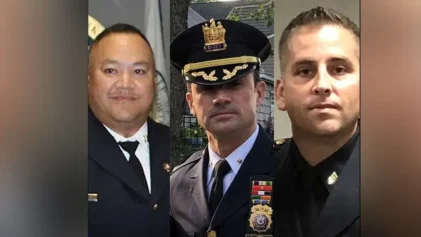“What could have led him to this assumption, other than the color of my skin,” said Brooklyn Crockton, Roger Williams University School of Law student who was racially profiled at a Rhode Island courthouse.
Crockton, 25, was representing a client as part of the school’s criminal defense clinic at the Garrahy Judicial Complex on March 3, when a sheriff’s deputy pulled her aside.
“I’m walking into the courtroom and I’m like, good morning, good morning, and he’s like can you please step over to the side and I’m like, OK He goes, well, aren’t you the defendant, and I go no, no, not the defendant,” Crockton said.
Crockton says while in the courtroom matters worsened. “To add insult to injury, once I’m inside the courtroom, he continues to be very patronizing to me telling me where to sit and what to do as if I’ve never entered into a courtroom before,” Crockton said of the experience.
The law student shared her experience on her TikTok which garnered hundreds of thousands of views. She’s using the experience she described as embarrassing to highlight a perpetual problem that plagues the U.S. justice system, racial bias.
“It’s kind of this trickledown effect when it comes to people of color interacting with the system because as legal professionals, we encounter the implicit racism and sometimes it’s very overt but we’re not the biggest losers in these instances, the biggest losers are the defendants, the people coming and having this adversarial interaction with the judiciary,” Brockton said.
Laura McNeal, J.D., Ph.D., is a legal analyst and law professor at the University of Louisville with more than 20 years’ experience in the legal field. She describes within her career, she too experienced similar racial profiling as Crockton during her career.
“I’ve been stopped when I provided expert testimony, ‘ma’am, do you need help’ as if I don’t know where I’m going, I’m in a courthouse, I’m a legal professional,” McNeal said.
McNeal says she has told law students of color to expect racism within their career despite having earned a law degree. She also provides anti-bias trainings various law schools across the country. She says within academia, there’s a general belief America is moving towards a post-racial society and incidents like what happened to Crockton is continued proof of the opposite and more bias trainings are needed at all levels within the justice system.
“If you can imagine at every level when you’re first stopped by a police officer because you’re racially profiled, to not being able to afford an attorney so you have a public defender who may not have all the resources, then you have a prosecutor who’s looking the other way for some suspects and may have a totally different approach for you so at every level, the sentencing the judges and systemic racism is embedded within all of our institutions at multiple levels and the moment we really acknowledge that as a society then we can start moving to authentic change,” McNeal said.
Crockton says the deputy who sparked the uproar did haphazardly apologize for his actions. More importantly, Crockton says this experience further validates why she pursued the legal profession in the first place, to shine a light on racial disparities and biases negatively impacting people of color.
“Since I’ve got into my career, I realize that’s the debt we have to pay to ensure more people that are educated within our system otherwise this mass incarceration and implicit racism when it comes to the judiciary, it’s never going to stop,” Crockton said of her purpose in becoming a lawyer.


